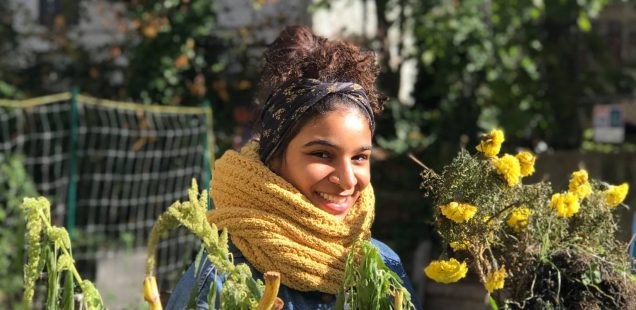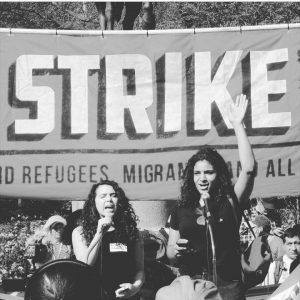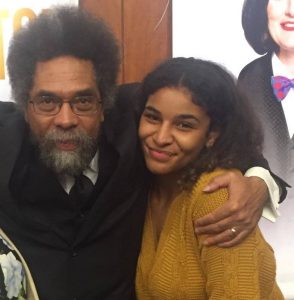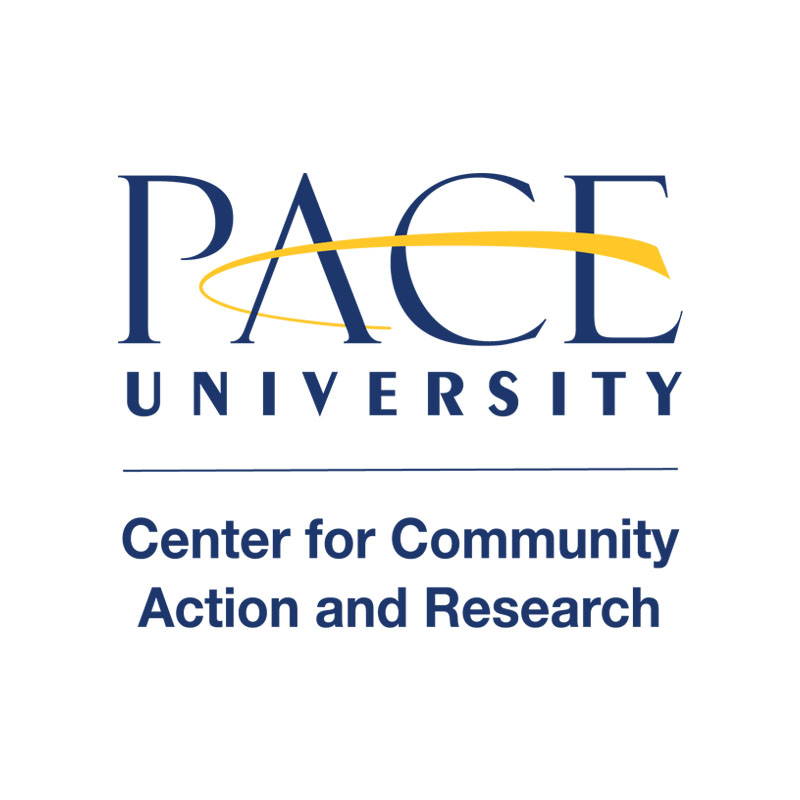
Volunteer Spotlight: Karina Roca ’19
Major: Political Science and Peace & Justice Studies
Minors: Sustainability and African-American History
How did you first hear about CCAR at Pace?
It was my first semester as a freshman, and I was curious about volunteering in the city. My friend/mentor at the time, Nelli, told me about CCAR. I volunteered on Paint a School Day in October and I basically fell in love with CCAR shortly after.
What inspired you to become an active member of your community?
 My mother is my first point of inspiration in being an active member of my community. With two jobs and as a single parent, she still somehow managed to make dinner for elderly people, sick people, or struggling people in my neighborhood all of the time.
My mother is my first point of inspiration in being an active member of my community. With two jobs and as a single parent, she still somehow managed to make dinner for elderly people, sick people, or struggling people in my neighborhood all of the time.
For myself, the more I learned about the intricacies of poverty, I felt compelled to get my hands dirty for people essentially forgotten about by government services, neglected by school systems, left out of food systems, etc. I feel that if you are young, able-bodied & have access to opportunities and university, there is really no excuse for not being an active member of your community. If people with even more urgent circumstance still find ways to be community leaders, we just have no excuse.
Do you have any memorable volunteer experiences that have shaped your life as an engaged student on campus?
My first real Student Leaders in Service trip I organized and led made me feel so accomplished. I am a member of SLS [with CCAR] as well as Vice President of the Black Student Union on campus, so having an opportunity to bridge these two organizations to make an impact in the South Bronx was so exciting. I think that finding creative ways to merge positions and initiatives you are involved with on campus is a great way to raise awareness, engage people, and foster Pace community. This moment was an achievement for me because I have put many years of work and love into both organizations (CCAR & BSU) so the moment I could lead and unite the two felt awesome.
How did you become involved with Student Leaders in Service, and how did you choose your community partner organization?
Through the years of being at Pace, I have frequently volunteered on CCAR’s organized trips and showed deep interest in advocacy on and off campus. For this, I was nominated for the SLS position to continue my work in the community with more of a platform to work from. I chose my community partner, Kelly St. Gardens in the South Bronx, because food justice is where my passions lie. I networked with a farm coordinator at an SLS-led event, and she hooked me up with Kelly St. I will actually be interning with Kelly St. Gardens in the spring, and I have my involvement with CCAR to thank for that.
What advice would you give anyone who might be interested in becoming civically engaged in their community?

I would tell this person to volunteer with a community they have connection to–empathy fuels great work and you learn a lot about yourself in the process. A huge part of being engaged is having a network of like-minded people to bounce ideas off of, hear about events through, and call to action alongside. Using your access to resources like the CCAR office will be the first step in creating this network, and from there, you just follow what interests you and what makes you feel fulfilled in knowing you are making an impact.
What does the future look like for you, in terms of service work and advocacy?
As much as I love to write and research, I vowed to myself to never be an arm-chair revolutionary. I have plans to go to farm school, where I can learn of sustainable ways to grow food in urban environments for those in need. I am not all that sure of where I am going post-graduation, however, whatever position that is, I will be exercising my rights, advocating for vulnerable groups, and serving my community. Everyone, regardless of career choice, should try their best to look up from their phones and busy lives to foster community around them. I feel that showing love, sympathy, and interest in each other is especially important now more than ever, given the political climate (or turmoil) we are in.





